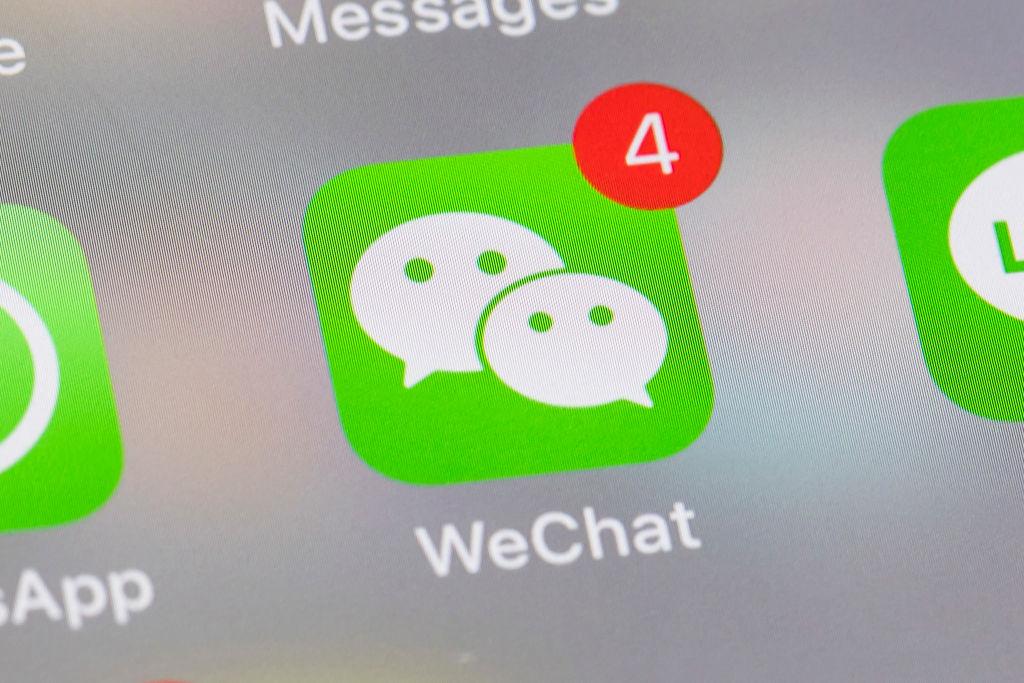
Scott Morrison demanded three things in his emotionally charged press conference about ‘that tweet’ last week. One: an apology, two: that the Chinese government remove foreign ministry spokesman Zhao Lijian’s post, and three: that Twitter remove the post.
None of the demands were met. Instead, even as the prime minister’s fulmination over Beijing’s deliberate provocation was still echoing around the world, the only post that was removed was his own statement on the issue that his team had posted to the Chinese social media platform WeChat.
In the now-censored post, Morrison delivered a message he should have led with in the first place. He said that Australia was a ‘free, democratic’ country and was using an ‘honest and transparent process’ to deal with the allegations of war crimes in Afghanistan.
‘Where there are alleged events that have taken place that require action, well we have set up the honest and transparent processes for that to take place. That is what a free, democratic, liberal country does’, he wrote.
Morrison’s comments were replaced with a notice from WeChat saying the post involved ‘the use of words, pictures, videos’ that would ‘incite, mislead and violate objective facts, fabricating social hot topics, distorting historical events and confusing the public’.
But when the prime minister was asked if he was making ‘representations’ to Twitter and WeChat about their content-moderation decisions, he told reporters it was a matter for the social media companies.
‘We have made our views clear on that and they can make an explanation of their action if they choose to make one’, he said.
Deleting the social media post of Australia’s leader would seem to be a fairly drastic move that would warrant a stern and strident reaction and a demand for an explanation. So why was Morrison’s response to this apparent act of censorship so limp?
One reason is clear. What WeChat did was totally within its rules, and the prime minister knows it.
Morrison has known for at least a year and a half that, because his account is registered to an unnamed man in Fujian province, any message he posts from it is subject to China’s censorship rules.
The PM is not alone. When the ABC looked into the situation in April 2019, it found no less than a dozen accounts operated by Australian politicians that were registered to random people in the People’s Republic of China.
The Australian politicians who have set up their WeChat accounts this way are actually in breach of the platform’s terms and conditions. Under WeChat’s rules, ‘the initial registration applicant shall not donate, borrow, rent, transfer or sell the Weixin [WeChat] account, nor permit any non-initial registration applicant to use the Weixin account’. That means they could be shut down at a moment’s notice, even during a hotly contested election, for example.
Aside from the fact that this arrangement opens up politicians to censorship from Beijing, it also puts the PRC nationals in whose names the accounts are registered in serious danger.
If one of these politicians were inclined to post a message that crossed one of Beijing’s many political red lines—as the prime minister did last week—the account owner could be detained by Chinese authorities.
In fact, just a couple of days after the prime minister’s WeChat account was censored, the Victorian Liberal Party’s WeChat account was stripped of its name by the platform for breaking its rules.
That account is tied to a Shanghai-based company that is registered to Locky Ge, the founder and chief executive of fintech company RoyalPay, a Melbourne-based start-up which has partnered with Tencent (WeChat’s parent company) to roll out WeChat payment to Australian consumers.
So why are politicians and political parties so willing to put themselves in a position where they could be censored by Beijing and endanger the safety of Chinese citizens?
After all, they could mitigate some of these concerns if, instead of using what’s referred to on WeChat as a ‘subscription account’ (订阅号), which requires registration via a Chinese national third party, they used a ‘service account’ (服务号), which does not.
The reason they don’t do this? Simple. A ‘subscription account’ allows for one push-notification-enabled article a day. A ‘service account’ only allows for four push-notification-enabled articles a month.
The Australian Labor Party, presumably by contacting Tencent directly, has attempted to strike a balance between these security and censorship concerns and its electoral need to communicate directly with Chinese-Australian voters. Labor has a ‘subscription account’ that anomalously is not registered to anyone.
Clearly, WeChat does not provide a level playing field. Australia’s two major parties find themselves in a classic prisoner’s dilemma: if either of them makes too much of a fuss about Tencent’s lack of transparency, they could be penalised by the platform and give their domestic political opponents a distinct electoral advantage.
That advantage isn’t trivial. There are several marginal seats at the federal level in Australia (and more at the state level) with large numbers of WeChat-using Chinese-Australian voters in them. Chisholm in Victoria and Banks, and Reid and Bennelong in New South Wales are prime examples. When the difference between being in government and being in opposition comes down to a handful of seats, the use of WeChat could potentially be decisive.
With the next federal election likely to be held in 2022, now would be a good time for the Liberal and Labor parties to mutually agree to stop using WeChat as a campaign channel and to start work on bipartisan legislation to properly regulate this influential platform.